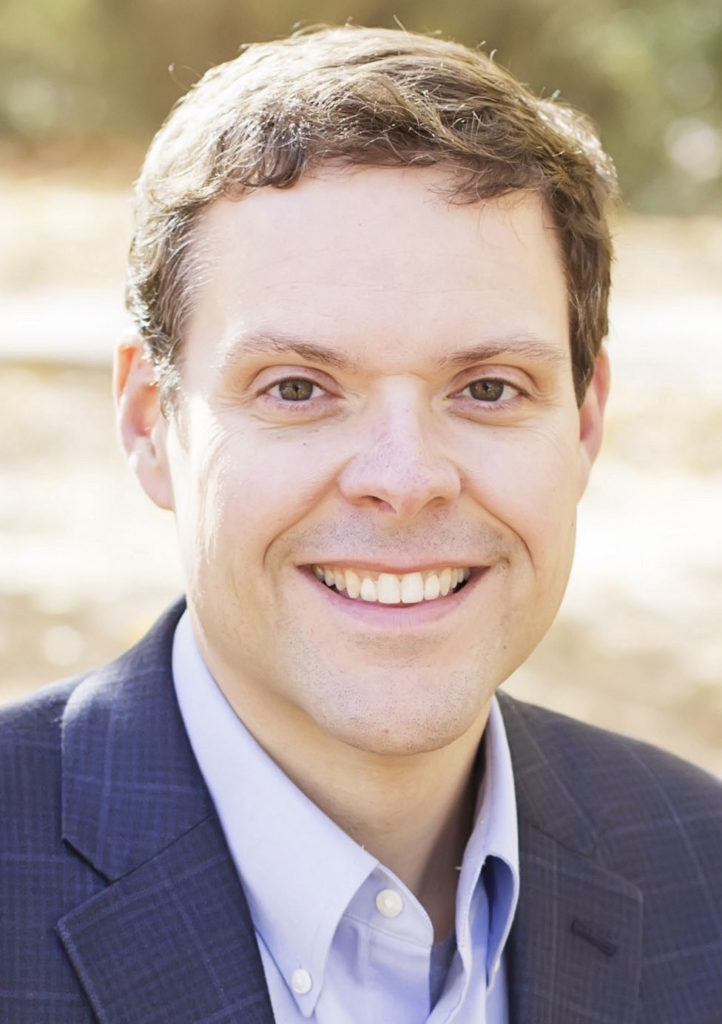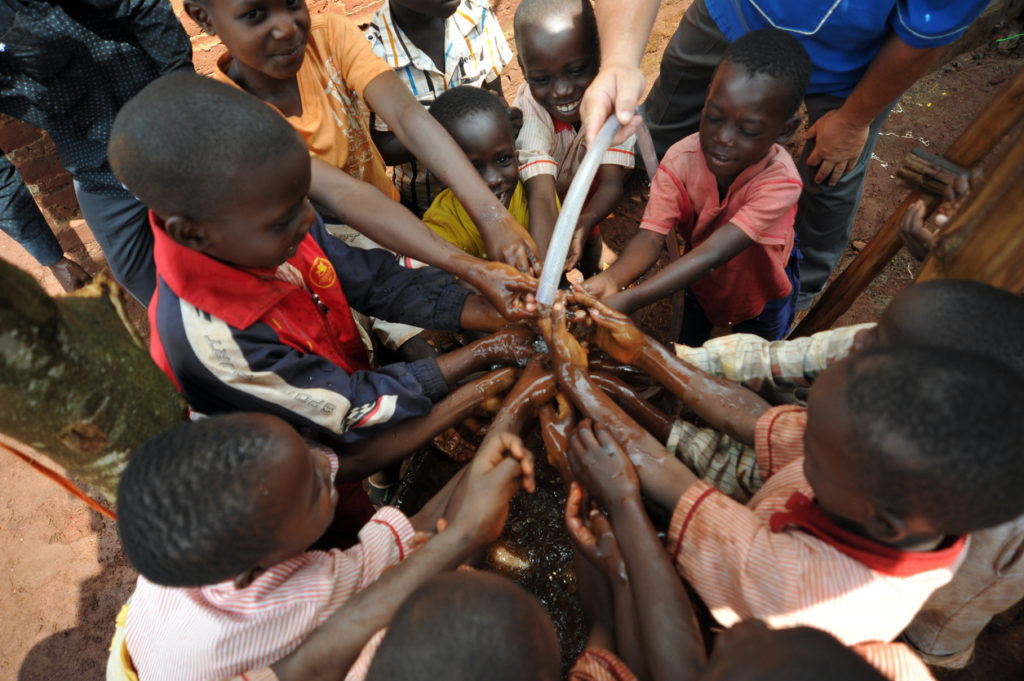
 Editor’s note: Herbie Newell is president and executive director of Lifeline Children’s Services.
Editor’s note: Herbie Newell is president and executive director of Lifeline Children’s Services.
Pastor Raphael Kujjubi left everything he and his family knew to plant King Jesus Church in the midst of the predominantly Muslim slum of Busega, Uganda. Busega lacked a church committed to proclaiming the Gospel that also was showing Gospel-driven justice to the most vulnerable. Busega was known for children born blind and deaf who were treated as though their lives had no value – that they themselves had no value.
As pastor of a church committed to the life-changing power of the Gospel, Kujjubi believed things could be different for these children if they were treated as image bearers of our Creator rather than locked in closets, treated as outcasts and abandoned. King Jesus Church and Pastor Kujjubi offered these children and their families a gift they had never been offered – hope. The Busega School for the Blind and Deaf was born and to date has served 31 children.
Unable to interact with their families and their community, most of these children had come to believe they had no value or worth. Soon, however, through sign language training, basic schooling and discipleship, these precious image bearers learned the truth that they possessed God-given potential that allows them to know Him and to have a hope and a future. Moreover, Busega has been transformed as people far from the Lord have seen the hope of the Gospel up close in the lives of those they once saw as without hope or value.
The plight of orphaned and vulnerable children is not confined to Busega or even the entire continent of Africa. According to UNICEF, 140 million children are orphans globally. To put that number in perspective, if a grain of rice represents one child, you would need more than 6,000 pounds of rice to illustrate all the orphans in the world. Of these, less than one half of one percent will be adopted. They are, in stark terms, unadoptable this side of heaven.
Dejected, or determined?
(Un)adopted is Lifeline’s international orphan care ministry. At first glance, the term unadopted conveys sadness and hopelessness. Orphans exist because something broke – a system, a structure, a relationship, a family. Many of the children categorized by the world as unadoptable are trapped due to government corruption, systemic poverty, parental addiction, and decades of compounded sin within their family units.
Many parents in crisis, believing they have no other option, hand their children over to institutional care in hopes they will at least have a roof over their head, food in their bellies, and a warm place to sleep. Unable to heal the underlying brokenness that causes children to be vulnerable, communities begin to normalize the existence of orphanages. And once they are out of sight, these precious children become all too easy to ignore. “We don’t have orphans here” has become the refrain in many parts of the world, including sometimes our own.
The truth is that orphaned and vulnerable children are hidden in plain sight. Those who have physical or mental impairments are labeled as handicapped and kept out of school. Some face civil war or disease. Many quite frankly are simply seen as inconvenient and a financial burden on the community: a problem that needs to be corrected.
Beloved, we must strive to see orphaned and vulnerable children not as the world sees them but as the Author and Sustainer of Life sees them – with inestimable value, created bearing His image.
That’s why we place the “un” in parentheses in the name of our ministry to these children. Because, while many of the world’s orphans are “unadoptable” by a family here on earth, they are all adoptable into the family of God through the work of Jesus. I am filled with wonder and awe because of all we are seeing the Lord do through the ministry of (un)adopted, such as children deprived of family cared for by the body of Christ and led to know Jesus as their King.
As the “un” goes into parentheses, the latter part of the term shines brighter. Pastor Kujjubi and many others like him believe that adoption can take many forms – unwanted, we are adopted into a community of caring people; unnecessary, we are adopted into the possibilities of hopes and dreams; unlovable, we are adopted into God’s family. We help these vulnerable children receive love and care, enroll in schools, learn life skills, and hear and respond to the hope of the Gospel.
The other side of life
We can offer all these things to the world’s (un)adopted children. They are God’s children – and therefore, ours as well. As followers of Christ, we’ve been given a mandate: care for the least, the last and the lost; cry out for the poor, the lame and the forgotten. The enormity of this 140-million-person crisis can overwhelm us – or it can compel us.
Several years ago, Damba’s* mother, a witch doctor, tried to cure her child’s deafness by putting sticks with fire in his ears. Considered cursed, Damba was also born with an autoimmune disorder which caused sores on his face and body. (un)adopted helped King Jesus Church get Damba both medical treatment and hope for tomorrow. Today, Damba is one of the children attending Pastor Kujjubi’s school. Today Damba knows Jesus as His Savior, and He serves as the Busega School’s student chaplain. Today, he smiles and dances and tells of how much God loves him and the others. His world has been changed in the present and for all eternity.
Terms like unlovable and undesirable don’t exist in God’s vocabulary when it comes to His creation. At Lifeline, we are fighting to ensure that no one believes these lies to be true about themselves. Lifeline was created to support adoption work in 1981 in Birmingham, Ala. In 2000, Lifeline expanded its ministry to international adoption, starting in China. In 2003, Ukraine was added, and in 2004, Guatemala. Each year, additional countries have been added. Lifeline currently has international adoption efforts in 18 countries and has served more than 2,000 children through our orphan care efforts.
The task is enormous. But Damba is proof that when hearts like Pastor Kujjubi’s are moved to believe things can be different, hope is never completely lost. I invite you to join me in showing 140 million children that they are indeed lovable, necessary, and, finally and forever, adopted by God and by those who follow His heart.
*Name changed
















